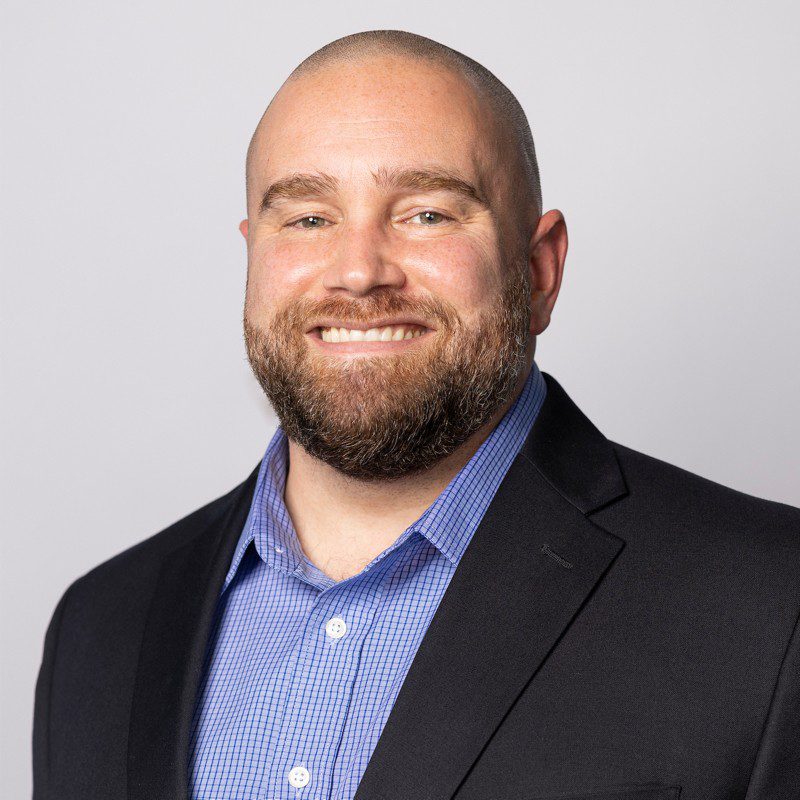
There is so much power in “yes.” Saying “yes” to new experiences, “yes” to big changes, and “yes” to opportunities can open a multitude of doors. Bryan Blaney, General Manager of the Entertainment and Learning Center at the New Jersey Hall of Fame, has found success and happiness within his career by staying open to opportunities.
Blaney discovered his passion for science literacy by exploring a variety of experiences. In a discussion with Aspire alumni, he explained that the path may not go as planned, but it is still possible to achieve your objectives.
Our team had the opportunity to ask Blaney about his journey to finding a career he loves. In our conversation, he emphasized the importance of perseverance in tough times, willingness to take on new roles, and adapting to change.
Could you tell us how you ended up as the Director of Audience Development and Experience at the New York Hall of Science?
I always say that my career in science and technology centers was a little bit of a happy accident. I was passionate about science and had initially thought I would go into a STEM career as a scientist or engineer. While I was pursuing those aspirations, I did some volunteer work and later found my first job at Liberty Science Center (LSC) in Jersey City, New Jersey. I got to spend my days talking to people about topics I found interesting. I loved when you could see that spark in their eyes when they thought something I was saying was cool or inspiring.
I stayed on in a part-time capacity during college. As I was wrapping up my studies, I intended to gear up for a job search in my field [of computer science]. Because of my experience and an opportune vacancy, I was offered what was supposed to be a temporary supervisory position at Liberty Science Center.
Before I knew it, a part-time summer job turned into a career spanning a few decades. I didn’t initially realize it, but my passion for STEM was really a passion for science communication and STEM literacy. After a brief break from the workforce during the height of COVID, I was excited to take my decades of experience to the New York Hall of Science — New York City’s only hands-on science center.
You mentioned you were inspired by Bill Nye the Science Guy. How did he influence your choice when it came to picking a career path?
As someone who was interested in science, I watched his show as a kid all the time. While I secretly would have loved to be a TV star myself, what I really thought was compelling is that he made a career out of entertaining people about topics I found interesting. When I learned he was an engineer who had worked for Boeing, I thought that was the path I should follow.
While my academic pursuits left me with a degree in computer science, I realized that what I was doing at Liberty Science Center was essentially what Bill was doing — only not on TV. I love being able to contribute to society in that way, and I really did get to follow my passion.
Can you tell us about a pivotal moment in your life that occurred because you took a chance and said yes to an opportunity?
The power of “yes” is an amazing thing. I’ve learned in my life is that when an interesting opportunity presents itself, you just have to go for it.
I think about when I was laid off from LSC; I decided it was an opportunity to leverage my computer science degree and change careers. I didn’t expect to be called into my director’s office a week after getting my notice and asked to consider a new position that was created to help deliver family science programs across New Jersey’s 31 most underserved school districts.
At first, I politely declined. I thought I had made up my mind to change my career focus. After going home and reading the job description, I was excited at the thought of starting something new for LSC and having direct impact in communities. I ultimately said “yes,” and I consider this to be a major turning point for me. I was given the opportunity to develop a lot of new skills, break out of my comfort zone, and have a positive impact all at the same time.
You mentioned that you lost your job during the pandemic when the museum closed. Do you have advice for those who are also trying to bounce back from major life events?
Honestly, it was a tough pill to swallow for me. I was doing some mission-critical work at the Science Center in the days leading up to our pandemic-related closure, and I never would have thought I’d be in that situation only a week or two earlier. I stayed active in the industry by finding networking opportunities and reaching out to old colleagues and mentors. When the time was right for me to make my comeback, I was ready.
What led you to volunteer your time with Aspire? How did you find out about us?
I chose to volunteer with Aspire at the recommendation of a current employee who was a former colleague of mine. When he told me about the great and meaningful work Aspire was doing, I jumped at the opportunity.
Formal education is important and can open up doors for you that might not otherwise be accessible. How to pick which door is right for you and successfully navigate what comes after walking through it is where the work of organizations like Aspire is incredibly useful.
The tools you leave school with are only part of what you need to be successful. Having good mentors helps you to effectively use those tools in your toolbox. It is both humbling and fulfilling to be able to help first-generation college students on their journey.
What did you find inspiring about speaking with our alumni?
It was an incredibly humbling experience. My favorite part was the Q&A portion. It was interesting to hear what resonated with them and their openness to what I had to say. Where I am in my career now, I like working with early career individuals and helping them find their way. I appreciated the opportunity to have a broader reach, and the thought of helping individuals whose path might not otherwise cross with mine was exciting.
What advice do you have for those who are trying to find a career that plays into their passions but is still practical and allows them to be successful?
Passion should be a driving force in one’s career, but you’re not going to be passionate about everything you do. There’s a lot of dues paying and learning that has to happen during the course of one’s career. Something I attribute to my own growth was volunteering to do the jobs no one else wanted to do.
When I took on the role leading family science events, I was excited about the impact our work would have – but it wasn’t all fun. It was a physically and mentally draining job. The passion helped me persevere, but it didn’t make me impervious to my frustrations. There were days I questioned whether or not this was the right thing for me.
In the end, I was really proud of what we achieved with those programs, and glad I was able to navigate my way through.




